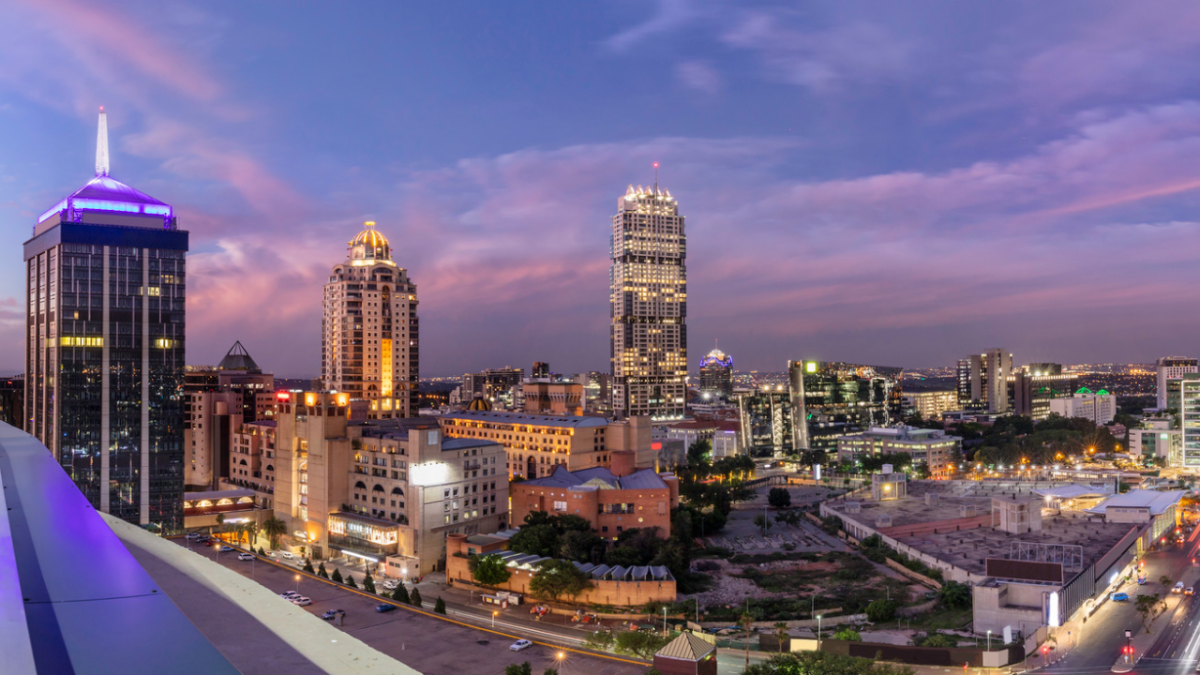
South Africa in the Spotlight: A Rising Economic Power
In the latest update of African countries ranked by Nominal GDP, South Africa shines brightly at the top with a GDP of $403 billion. This robust figure underscores South Africa's potential to emerge as a global economic leader, particularly as the nation shows signs of recovery and growth.
The recent establishment of the Government of National Unity (GNU) has played a pivotal role in steering the country towards stability and economic improvement. As South Africa navigates challenges stemming from the COVID-19 pandemic and ongoing issues like load shedding, the positive impact of this unity government is becoming increasingly evident. The South African Rand has shown remarkable resilience, gaining value and indicating renewed investor confidence. Furthermore, with the repo rate recently cut, there are expectations for additional reductions, fostering a more conducive environment for business and investment.
While many companies faced hardships due to the pandemic, a wave of new enterprises is rising, including notable foreign investments that are making significant strides in various sectors. This influx of capital is contributing to job creation and economic diversification, showcasing the country's potential as an investment destination.
Infrastructure improvements are also on the rise, with new roads being completed and existing ones upgraded, enhancing connectivity and facilitating trade. These developments not only support economic activity but also signal to investors that South Africa is committed to creating a more robust business environment.
Although South Africa leads the rankings, countries like Egypt ($380 billion), Algeria ($260 billion), and Nigeria ($199 billion) continue to play important roles in the continent's economy. However, with the right momentum, South Africa has the potential to elevate its position on the global stage, possibly becoming a key player in the international market.
As the country continues to progress, South Africa could be on the cusp of a transformative era, making it one of the most promising economies in the world.
Below are the full rankings of African countries by their Nominal GDP for November 2024:
- South Africa - $403 Billion
- Egypt - $380 Billion
- Algeria - $260 Billion
- Nigeria - $199 Billion
- Morocco - $157 Billion
- Ethiopia - $145 Billion
- Kenya - $116 Billion
- Angola - $113 Billion
- Côte d'Ivoire - $86 Billion
- Tanzania - $79 Billion
- Ghana - $75 Billion
- Democratic Republic of Congo - $72 Billion
- Uganda - $55 Billion
- Cameroon - $53 Billion
- Tunisia - $52 Billion
- Libya - $44 Billion
- Zimbabwe - $35 Billion
- Senegal - $33 Billion
- Sudan - $29 Billion
- Zambia - $25 Billion
- Guinea - $25 Billion
- Mozambique - $22 Billion
- Burkina Faso - $21 Billion
- Mali - $21 Billion
- Benin - $21 Billion
- Gabon - $20 Billion
- Botswana - $19 Billion
- Niger - $19 Billion
- Chad - $18 Billion
- Madagascar - $17 Billion
- Mauritius - $15 Billion
- Republic of Congo - $15 Billion
- Rwanda - $13 Billion
- Namibia - $13 Billion
- Equatorial Guinea - $12 Billion
- Somalia - $12 Billion
- Malawi - $10 Billion
- Mauritania - $10 Billion
- Togo - $9 Billion
- Sierra Leone - $7 Billion
- South Sudan - $5 Billion
- Eswatini - $5 Billion
- Liberia - $4 Billion
- Djibouti - $4 Billion
- Burundi - $4 Billion
- Central African Republic - $2 Billion
- Cabo Verde - $2 Billion
- The Gambia - $2 Billion
- Lesotho - $2 Billion
- Guinea-Bissau - $2 Billion
- Seychelles - $2 Billion
- Eritrea - $1 Billion
- Comoros - $1 Billion
- São Tomé and Príncipe - $0.812 Billion
With these developments, South Africa is not only positioned to recover but is also on track to potentially become one of the leading economies in the world, provided that the momentum of growth continues.